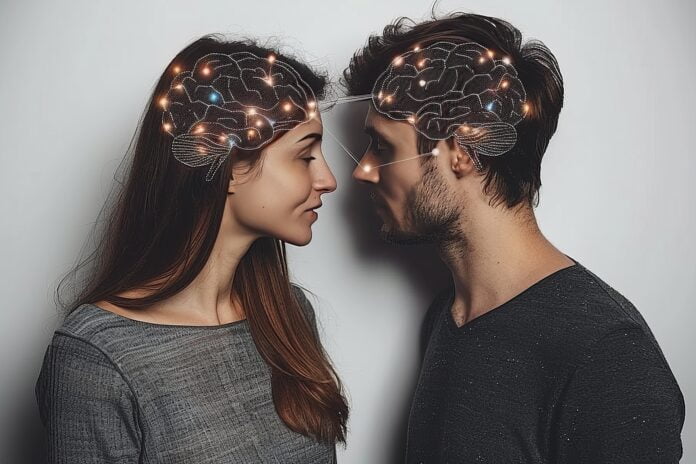By Byron and Mariah Edgington
According to The Elusive Brain author Jason Tougaw, “The neurodiversity movement has burgeoned through grassroots organization among people interested in social change. It’s gradually making space for itself in government, research, and education.” This movement toward an understanding that Neurodiversity is a natural and valuable form of human diversity is both refreshing and encouraging.
Writing in the April 2020 edition of Psychology Today, author Nick Walker, the author of the blog Neurocosmopolitanism, makes a strong case that Neurodifferences are not deficits to be ‘fixed’, or medicated away. They are, in the author’s words, “…a culturally constructed fiction, no more valid (and no more conducive to a healthy society…than the idea that there is one “normal” or “right” ethnicity, gender, or culture.” In short, the persistence of Neurodifferences in the human gene pool may be evidence that those differences kept us alive as a species.
Closer to the present, interest in marginalizing, minimizing, and medicating Neurodifference is waning

There’s an emerging consensus that those with Neurodivergent behaviors contribute much more to society than previously thought. The belief that their ‘condition’ is a medically-charged status is more than incorrect, it is hurtful. Such reductionist thinking and subsequent ‘cures’ for these differences can lead to over-medication, marginalization, and taken to its logical extreme the abortion of fetuses detected with certain syndromes.
We’re learning more all the time as neuroscience progresses, and more funding furthers research. In this piece, scientific inquiry aside, I show how Neurodifferences operate at a personal level, that is, among couples. I’ll share some of the ways my spouse and I navigate around, over, under, and through our (likely very common) status as a Neurodivergent/Neurotypical (ND/NT) couple.
Navigating Neurodifferences in Relationships
My brain happens to be ‘Neurotypical,’ that is, ‘normal.’ My wife is ‘Neurodivergent.’ As she said in our recent TEDx talk, citing Princeton University, “Identifying as neurodivergent means having a mind that functions in ways that diverge significantly from the dominant societal standard of “normal.” We used this quote as well in a recent Thought-Leader talk, citing emerging science supporting it. But what does this mean for couples? It means several things that two Neurotypical people may never consider.
For starters, we realize that we have an obligation to each other to be aware of our different perspectives, intuitions, and approaches to even the simplest actions. Here are a few examples: As a person with a normally wired brain, I’m wary of intuitive evidence. I prefer experientially derived data to form opinions and make decisions. My wife depends largely on her intuition. She even has a name for her ‘seventh sense’, if you will, referring to it as Tilley. Whatever decision is necessary she’ll mention what Tilley thinks.
For another example, my approach to projects, endeavors, or chores is linear. When writing, for example, I put one word down, then the next, then the next. This system seems plodding and demotivating to my wife. It works very well for me and has allowed me to write and publish six books. Our recent writing collaboration demanded a great deal of patience from both of us. Navigating that space is one reason we decided to further explore our Neurodifferences, and why we now offer presentations on this topic.
We’ve found that our differences are at times profound. Especially in creative efforts — for example the book project — her methodology is random, haphazard, and often, to my observation, quite arbitrary. While editing chapter 2 of our book, for example, (edit number 4, by the way, about which later), she made an intuitive leap to chapter 8, remembering data she believed would enhance chapter 2. Her random approach makes little sense to me, but it works very well for her. As to the fourth edit, she’s either the best editor a writer could want or the worst. Her focus is beyond what may politely be called laser-like. I try not to let the perfect be the enemy of the good, but her goal is perfection. It can be very trying.
Embracing and Understanding Neurodifferences
We believe our differences have enhanced our relationship, partly because they’ve forced us to study them at length. It demands a great deal of patience from both of us. In pursuing this understanding, our relationship has grown, and we know each other better than ever. One discovery has been my easy dismissal of her intuitive sense, and subsequent deference to my interpretations. It’s called Neuromasking, and until recently it was a comforting, if often humiliating retreat from her instinctive belief. Looking back, I’ve wondered how many times my assertion of agency over hers has damaged her self-esteem. It’s not a comforting thought. Contemplating the benefits we’ve dismissed is more discomfiting, and not something either one of us gives energy to. We move forward instead, pursuing the benefits arrayed in front of us.
It’s not a stretch to assume Neurodifferences benefit society as a whole, not just among couples. As Dr. Helen Taylor wrote in NeuroCyber, “We believe that we have also unwittingly put in place several cultural systems and practices that may be undermining our ability to adapt.” In other words, dismissing and ignoring human differences that have existed for eons is imperiling our society. In many cases, we believe, couples who may be mystified by their inability to relate to each other as deeply as they’d like may find comfort in the exploration my wife and I have embarked upon.
It’s an enticing topic to explore, especially once Neurodifferences are seen as benefits rather than deficits. We decided to dig deep, explore our differences, and embrace whatever we found. That search has enhanced our marriage and may have kept it alive!









